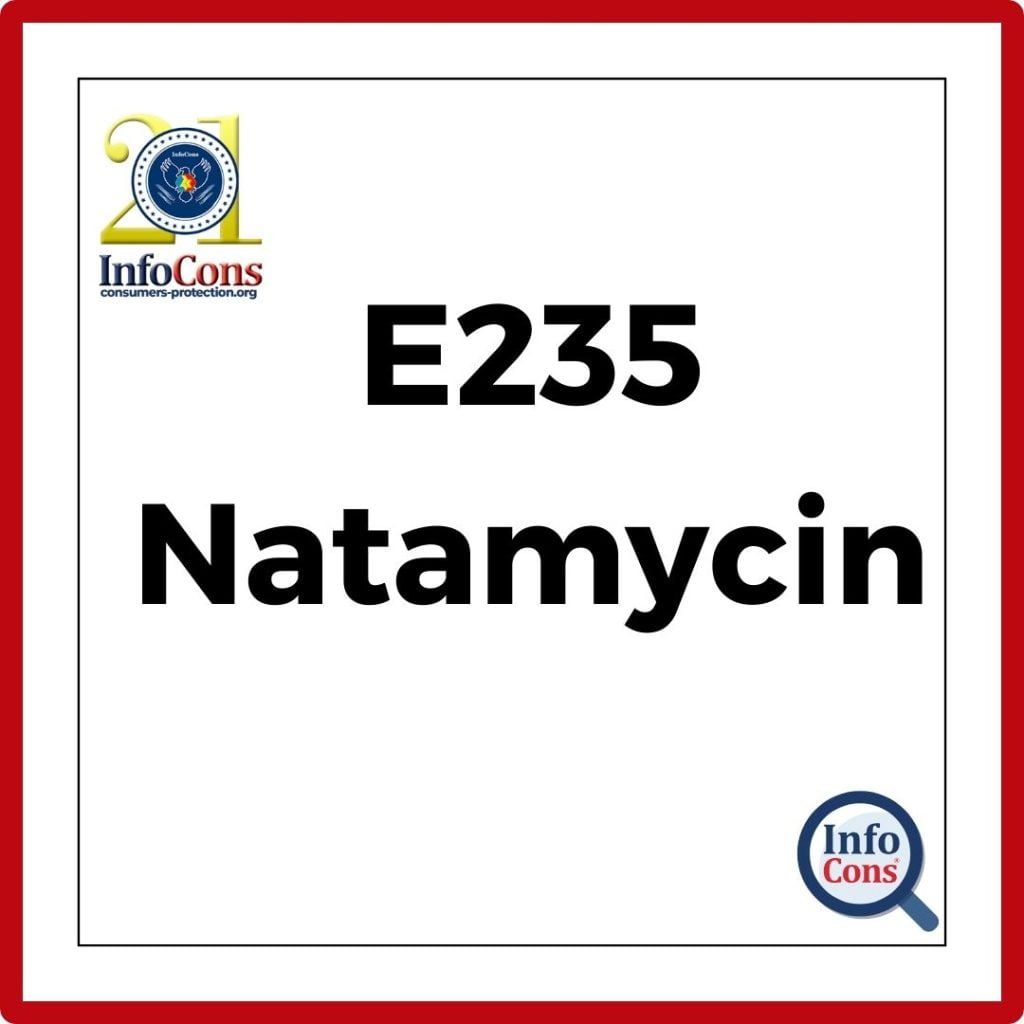What is Food Additive E235 ?
In the world of food additives, E235, also known as natamycin, holds a significant place. E235 is a food additive from the category of natural preservatives, produced by certain bacteria from the Streptomyces family. It was discovered in the mid-20th century and has since been used for its strong antifungal properties.
Unlike many other preservatives, E235 stands out for its natural origin, attracting consumers who seek more natural ingredients in their food. This natural antifungal agent has found extensive use in the food industry due to its effectiveness in preventing mold and yeast growth.
The main benefit of the E235 additive is its ability to extend the shelf life of food products, thus reducing waste and increasing economic efficiency. Its natural origin is another advantage, as it aligns with the growing consumer preference for natural additives over synthetic ones.
Do You Know What Food Additives are ? InfoCons Consumer Protection Informs You !
What is the Recommended Daily Dose ?
Natamycin, E235, is considered safe when used within recommended limits. Regulatory agencies have established maximum permissible levels for different food categories to ensure consumer safety.
For example, in the European Union, the use of E235 is regulated and has been evaluated by the European Food Safety Authority (EFSA), which has set a maximum recommended dose of 0.3 mg/kg body weight/day.
In Which Products Can You Find the E235 Additive ? InfoCons Consumer Protection Informs You !
Natamycin is predominantly used in the dairy industry, where it serves to extend the shelf life of products such as cheese and yogurt by inhibiting mold growth. However, its application is not limited to dairy products; E235 is also used in meat products, baked goods, and beverages.
Its ability to prevent spoilage without affecting the taste, smell, or appearance of food makes it a valued additive.
Read also : Pay attention to Alerts for food products with the European InfoCons App ! InfoCons Consumer Protection Informs You !
Contraindications and Risks
Despite its benefits, the use of E235 is not without challenges. One concern is the potential for developing resistance, although this is primarily a concern in clinical settings rather than food preservation. Another consideration is the need for proper application techniques to ensure its effectiveness, as improper use can lead to uneven distribution and reduced efficacy.
Studies have shown that natamycin is minimally absorbed by the human digestive tract, which further reduces the risk of any adverse health effects. This makes E235, natamycin, a preferable option compared to some synthetic preservatives, which may present higher health risks.
In conclusion, E235 plays a critical role in the food industry by improving the shelf life and safety of various food products. Its natural origin, combined with its proven efficacy and safety, makes it an invaluable tool for food manufacturers. As consumer preferences continue to evolve towards natural and safe food additives, the importance of E235 is likely to grow, ensuring its place in the future of food preservation.
Download the InfoCons application !
Look for products that have a cleaner label or use natural additives. By installing Consumer Protection InfoCons App and scanning the barcodes of food products, you can find out the number and type of food additives they contain.
Author – Cosmina Nițu
Master in Nutrition – Infant and new born nutrition
Sources:
https://www.efsa.europa.eu/en/ – European Food Safety Authority (EFSA)
InfoCons – European Organization for Consumers Protection and Promotion of Programs and Strategies , a full member of the World Organization Consumers International, founding member of the Federation of Consumer Associations, and member of ANEC.
